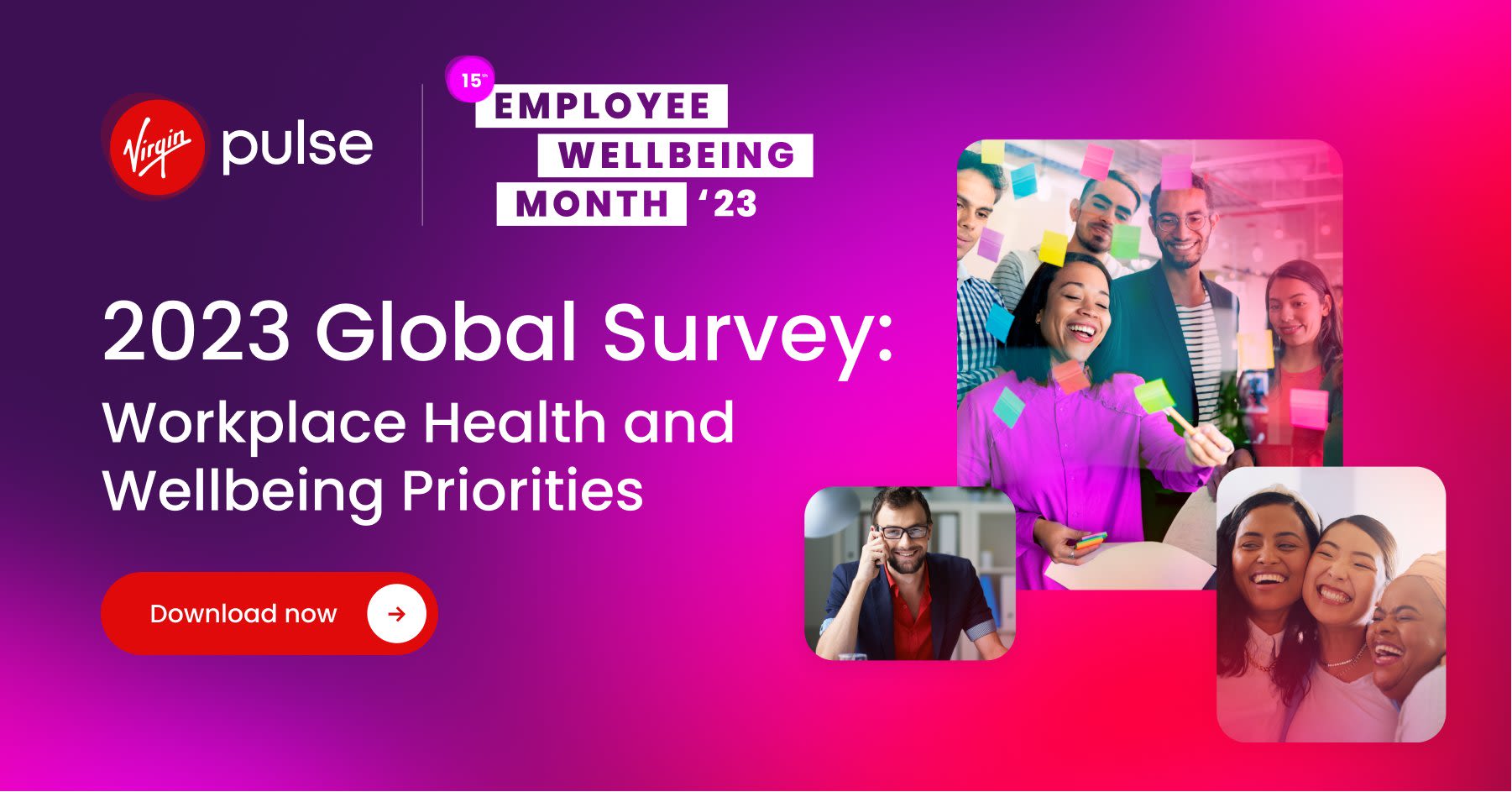Virgin Pulse survey reveals businesses expand their commitment to wellbeing
Businesses around the world continue to respond to a growing multitude of pressures – financial headwinds, rising costs, staffing and productivity challenges. A Virgin Pulse survey has revealed that, in the midst of this, companies have expanded their commitment to wellbeing initiatives with new strategies to attract and retain employees.
The 2023 Global Workplace Wellbeing Survey found that companies offering health and wellbeing programmes are seeing a clear return on investment and increased employee participation. These programmes are helping businesses address some of the challenges around company culture and mental health.
Virgin Pulse, the leading global digital-first health and wellbeing company, has revealed these insights as part of its celebration of Employee Wellbeing Month.
More than 70% of executives said that they had seen the value of employee wellbeing strategies – especially in improving employee health. This is a huge increase from the 2018 global survey where only 23% of executives said they could measure the impact that wellbeing programmes were having.
“It is no longer enough to offer basic benefits. Employees want to work for a company where their health and wellbeing is a priority, and where each individual is seen as a whole person,” said Jeff Jacques, chief medical officer for Virgin Pulse. “This survey really highlights what employers have intuitively known for years but haven't always known how they could help: thriving employees contribute to a thriving organisation. Despite the challenges being faced globally, it appears that many organisations now understand that investing in their employees' health and happiness pays many dividends.”
Other key findings of the global survey included:
Mental health is a significant challenge
One of the biggest challenges organisations are facing is mental health. This is hardly surprising given the impact of the pandemic over the past few years. More than half of organisations said that providing support for mental health concerns is among their top priorities for their health and wellbeing programme.
Engagement and culture are becoming more important
Organisations are recognising that employee engagement and culture are increasingly important. The survey showed that the main driver for offering health and wellbeing programmes was because a healthy workforce drives employee engagement and has a positive impact on workplace culture.
Social media needs to play its part
Benefits and employee programmes are only useful if colleagues know that they exist. Companies have started to use social media as a way of communicating about their wellbeing programmes, with 66% of businesses say they do this – compared to just 21% in 2018.
Visit Virgin Pulse to find out more about employee wellbeing and its digital engagement platform.

